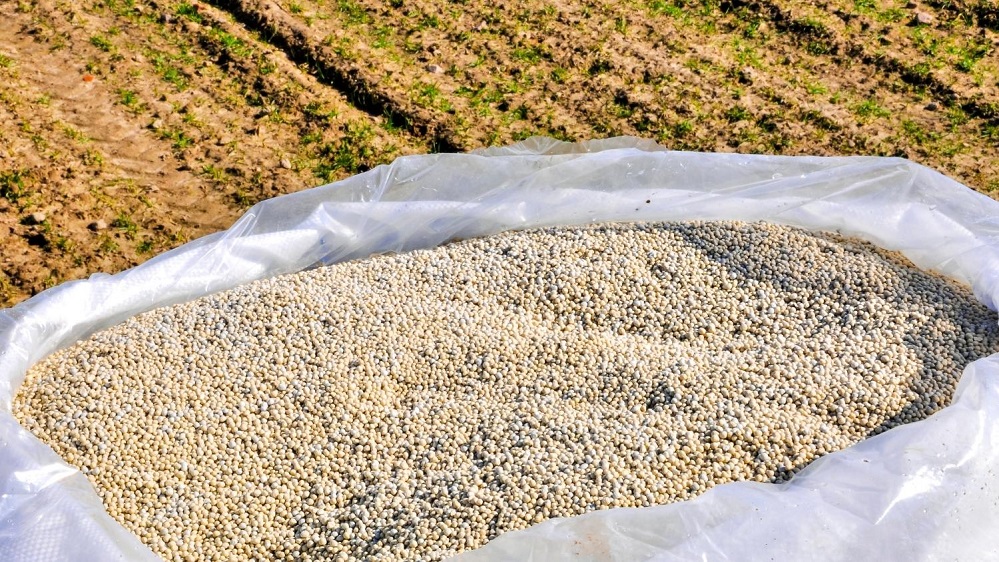
Recently, Nigerian bakers officially increased prices of different sizes of bread over what they attributed to the rising cost of wheat flour, a major component of bread and other pastries.
n the period under review, price of a 50kg bag of wheat flour rose from N30,000 in June to N40,000 presently. This immediately raised the cost of a loaf of bread from N800 in June to N1,000.
Sizes that sold for N1,000 in June are now selling for between N1,300 and N1,400.
The challenge posed by rising cost of wheat to bakers, bread and pastries’ consumers recently got stakeholders brainstorming on the feasibility of a viable and cost-effective alternative to wheat flour.
Over a decade ago, the administration of President Goodluck Jonthan embarked of an effort to develop a suitable alternative to wheat flour using cassava flour. The initial experiment was to incorporate cassava flour into dough for bread and pastries in order to reduce the amount of wheat going into confectionaries and consequently reducing the cost of production.
President Jonathan administration made concerted efforts at promoting the use of local cassava as the main source of flour in the country.
Championing the initiative then under Jonathan to make cassava bread a welcomed staple in Nigerian homes were the International Institute of Tropical Agriculture (IITA) Ibadan, which produced bread made of 40 per cent cassava and 60 per cent wheat contents; the National Root Crops Research Institute (NRCRI), Umudike, which developed three new varieties of vitamin A cassava, as well as the Federal Institute of Industrial Research, Oshodi (FIIRO), involved in the processing of cassava bread.
These agencies made samples of cassava bread as part of efforts to sensitise Nigerians on the importance of eating cassava bread.
To further encourage the cassava bread policy, former Minister of Agriculture and Rural Development, Dr. Akinwunmi Adesina, then declared that “producers of quality cassava bread will from this year enjoy a 12 per cent tax rebate and be given 18 months with effect from March 31, 2012, to move to the 40 per cent substitution of wheat flour with high quality cassava flour.
“From the 2012 fiscal year, the Federal Government would raise tariff on imported wheat and all equipment and machinery for processing high quality cassava flour as well as composite flours would attract zero taxes.’’
Adesina had also said, “we will save Nigeria N250 billion used for wheat imports, currently going to farmers of other countries, while putting this money into the hands of Nigerian farmers, which is why we are already working with the private sector to establish 12 high quality cassava processing plants with an installed capacity of 240 tonnes per day, which will allow us fully meet the needed supply of the flour.’’
All these were in a bid to encourage the consumption of cassava bread by Nigerians and the substitution of wheat flour with high quality cassava flour for bread production, according to Adesina.
Unfortunately the cassava bread project failed to resonate with the major stakeholders – the consumers – who expressed dissatisfaction with its quality and taste.
Owing to its apparent low acceptance level, the percentage of cassava flour in bread was reduced from the originally proposed 40 per cent to 20 per cent and eventually to 5 per cent. Despite the reduction, the cassava flour project still did not fly but eventually went moribund.
However, with the current cut-throat price of wheat flour due to the Russia -Ukraine war, a return to the cassava bread policy is fast receiving considerations at some quarters. But there are still fears that the limitations that cut short the policy’s lifespan have not been tackled and might still stall its second coming.
National Leader of Progressive Bakers Association of Nigeria (PBAN), Prince Jacob Adejonrin, in a chat with Daily Sun, said the initial cassava bread project hit a brick wall because cassava flour’s texture is not as fine as wheat flour.
Adejonrin said, “During Jonathan’s administration, we tried it but it didn’t work. They asked us bakers to try it and supply the bread to schools but it didn’t work. Nobody can consume cassava bread because cassava flour is heavy. It’s not as light as wheat flour.” He, however, noted that “it can be refined and made better if the government decides to invest in research to produce a better cassava flour.”
Adejorin further explained that popularising cassava bread might not be quickly feasible because “there is no way to get adequate cassava. Under the Jonathandispensation, cassava farmers were given some money to farm more and the processors were also given money to process cassava but there isn’t enough cassava in the country to continue the project. The challenge then was inadequate availability of cassava. Cassava growers lamented the lack of funds to plant enough cassava.
“Most of the available cassava is being used for garri production, which is consumed as eba or fufu, major staples in Nigeria. There’s a decline in cassava production in the country owing to a decline in yield. Cassava tubers being produced now are tiny; they are not as robust as they used to be.”
Also commenting on the cassava lour for bread experiment, Mr. Alexander Abia, the Manager at Richo Bakery, Coker, Lagos, said Nigeria’s dependence on wheat flour is worrisome and the country should wake up to seek out more cost-effective alternative to wheat flour.
He said, “wheat has been the major raw material for producing flour across bakery and other pastry products but I’ve not seen where we’ve used strictly cassava flour to make bread, though people mix it. If we can get a good flour from cassava, that will be a great alternative. It’s going to be nice if we can achieve that. “The high cost of flour is not affecting only bread. It’s affecting a lot of other products that are dependent on wheat flour. We are talking about a wide range of products that have been affected. For instance, a packet of spaghetti that was N180 is now N450. All noodles, spaghetti and macaroni are wheat dependent. “It’s high time the government woke up to support individuals and research institutions to go into research to find alternative to wheat flour. If we had an alternative to wheat flour, by now we would have switched and everything would still be balanced.”












